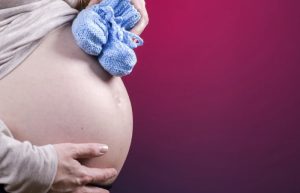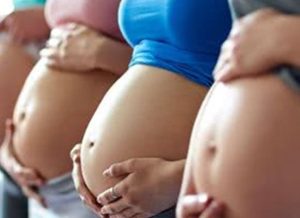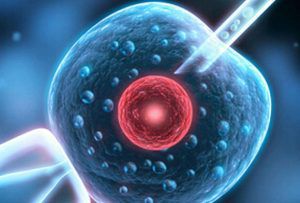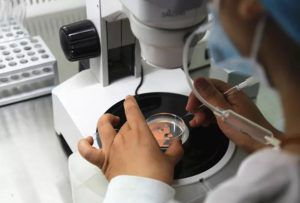Third-generation IVF (PGD/PGS) is an advanced technique to help infertile patients achieve their fertility wishes through in vitro fertilization (IVF) and embryo transfer. The process involves steps such as ovulation induction, embryo culture, genetic screening and transfer. In this article, we will detail the process and timeline of third-generation IVF and discuss the things to be aware of and the challenges faced by women of advanced maternal age during the process.

What does it mean to be a woman of advanced maternal age?
An advanced maternal age is usually defined as a woman aged 35 years or older. Women in this age group face greater challenges when it comes to fertility, as both ovarian function and egg quality decline with age. Not only do older women have difficulty conceiving naturally, they also face a higher risk of failure when undergoing IVF treatment.
Studies have shown that older women are more likely to have intrauterine growth retardation and preterm labor. To minimize these risks, women planning to have a baby are advised to try to conceive before the age of 35. If they still wish to have children beyond the age of 38, early IVF treatment is recommended to increase the chances of success. A woman's success rate with IVF decreases significantly after the age of 45, so early preparation and consultation with a medical professional is crucial.
IVF Success Rate for Advanced Mothers
The IVF success rate for older women is lower and is mainly affected by age and ovarian function. According to statistics, the IVF success rate for women over the age of 35 is about 30%-40%, while at the age of 40 and above, the rate may drop to about 20%. In comparison, success rates for younger women are usually between 50%-60%.
Age has a significant impact on ovarian function, with the number and quality of eggs declining with age, which has a direct impact on the rate of successful embryo implantation. Studies have shown that older women undergoing IVF treatment often require multiple attempts to achieve a successful pregnancy, which adds financial and psychological stress. Nonetheless, success rates can be improved to some extent through scientific lifestyle modifications and following medical advice.
The physical condition of the senior mother is also an important factor in the success rate. Overweight or underweight, chronic diseases (e.g., diabetes, hypertension), etc. can affect the success rate of IVF. Therefore, maintaining good health is crucial to improving the success rate of IVF.

What are the Risks of IVF for Advanced Mothers
Older women face multiple risks when undergoing IVF treatment, including pregnancy complications, psychological stress and financial burden.
First, older mothers are at a significantly increased risk of pregnancy complications. For example, older women are more likely to suffer from hypertension, gestational diabetes and pre-eclampsia. There is also an increased risk of chromosomal abnormalities (e.g. Down's syndrome) and birth defects in the fetus.
Secondly, psychological stress is a common problem for senior women during IVF. Multiple failed attempts may lead to frustration and anxiety, affecting mental health and family harmony. Studies have shown that psychological stress further affects the success rate of IVF, therefore, senior mothers need to be provided with adequate psychological support and professional guidance.
Finally, the high cost of IVF treatment is also an important consideration. Due to the lower success rate of IVF, multiple attempts are often required for success, which undoubtedly adds to the financial burden. The cost of a single IVF treatment can range from a few thousand to tens of thousands of dollars, with multiple attempts being even more expensive. Therefore, senior women need to consider the financial factors and set a reasonable budget before deciding to undergo IVF treatment.
Considerations for advanced maternal age for IVF
Prior to undergoing IVF treatment, senior women need to undergo a comprehensive physical examination to assess their health and fertility. These tests include tubal patency tests, ovarian function tests, uterine tests and routine blood tests. Men also need to undergo a semen test and physical health check to ensure the quality and quantity of sperm.
In addition, women of advanced maternal age should start taking folic acid supplements three months before they are ready to conceive in order to prevent fetal neural tube defects. Folic acid is essential for fetal neurological development, and continued folic acid supplementation through the first trimester of pregnancy can effectively reduce the risk of fetal neural defects.
During IVF treatment, senior mothers need to pay close attention to the changes in their bodies, follow the doctor's advice, rationalize their daily routine, maintain healthy eating habits and proper exercise. Regular labor and delivery checkups will be conducted to monitor the development of the fetus, and potential risks will be identified and dealt with in a timely manner.
Lastly, mental health is also an important aspect that needs to be taken care of for women of advanced maternal age. The IVF treatment process is long and challenging, and senior mothers should maintain a positive mindset and seek professional psychological support and family understanding and support.
Advanced Egg Donor In Vitro Program
Egg donor IVF is an effective option for senior women who have poor quality eggs of their own during IVF treatment. Egg donor IVF is a process that uses a young woman's eggs to help a senior woman achieve fertility through in vitro fertilization and embryo transfer.

The success rate of IVF with donor eggs is relatively high, mainly because the egg donors are usually young women whose eggs are of better quality. According to statistics, the success rate of IVF using donor eggs is between 50%-70%, which is much higher than the success rate of senior women using their own eggs. This data suggests that IVF with donor eggs is a viable path for senior women to achieve fertility.
The process of IVF with donor eggs is similar to conventional IVF, but there are a number of factors that need to be taken into consideration when choosing an egg donor, including the age, health and genetic background of the donor. Egg donors and recipients are usually matched with each other through specialized egg donor agencies to ensure maximum physical and psychological matching.
Senior women also need to consider legal and ethical issues when choosing IVF with donor eggs. Different countries and regions have different legal regulations on IVF for eggs, and there may be legal restrictions in some places. Therefore, before choosing IVF for eggs, senior women should consult professional lawyers and medical institutions to understand the relevant legal regulations and procedures.
While IVF with donor eggs offers the hope of fertility to women of advanced age, the process also involves psychological and emotional challenges. Accepting another person's eggs may trigger problems in terms of identity and family relationships. Therefore, senior women should fully consider these factors, communicate with family members and seek the help of a counselor before choosing IVF with donor eggs.
summarize
Third-generation IVF technology offers hope for advanced maternal age women to realize their fertility aspirations. However, senior women need to face lower success rates and higher risks when undergoing IVF treatment. The success rate of IVF can be improved to a certain extent through scientific lifestyle modification, following medical advice, comprehensive physical examination and psychological support. Egg donor IVF provides an effective fertility option for senior women with higher success rates, but legal and ethical issues need to be considered. It is hoped that this article will provide useful information and guidance to senior women who are planning to have a baby, helping them to better cope with the challenges of IVF treatment and to achieve the goal of healthy fertility.





